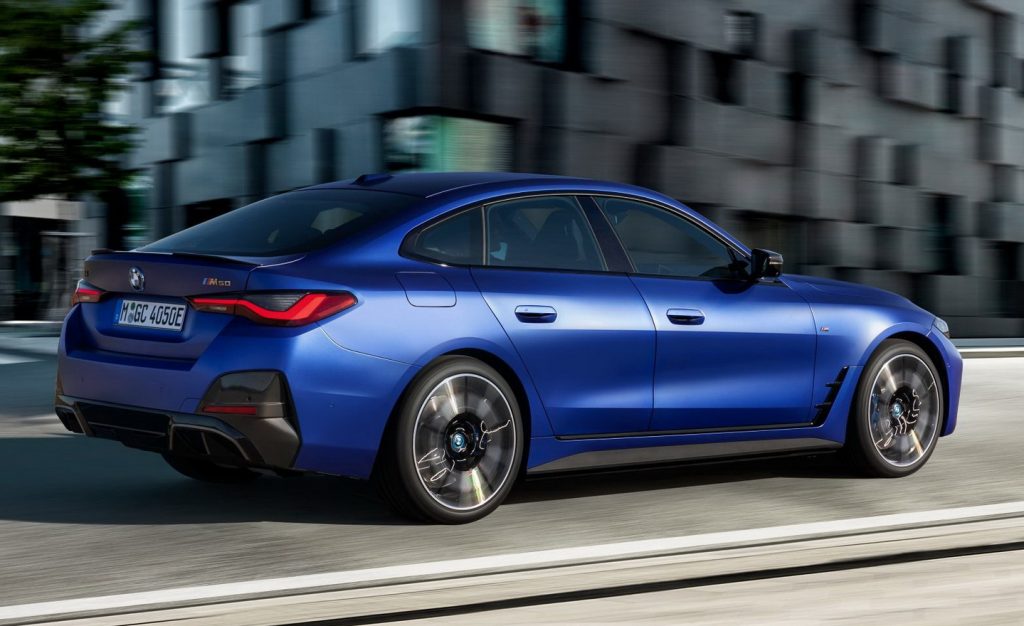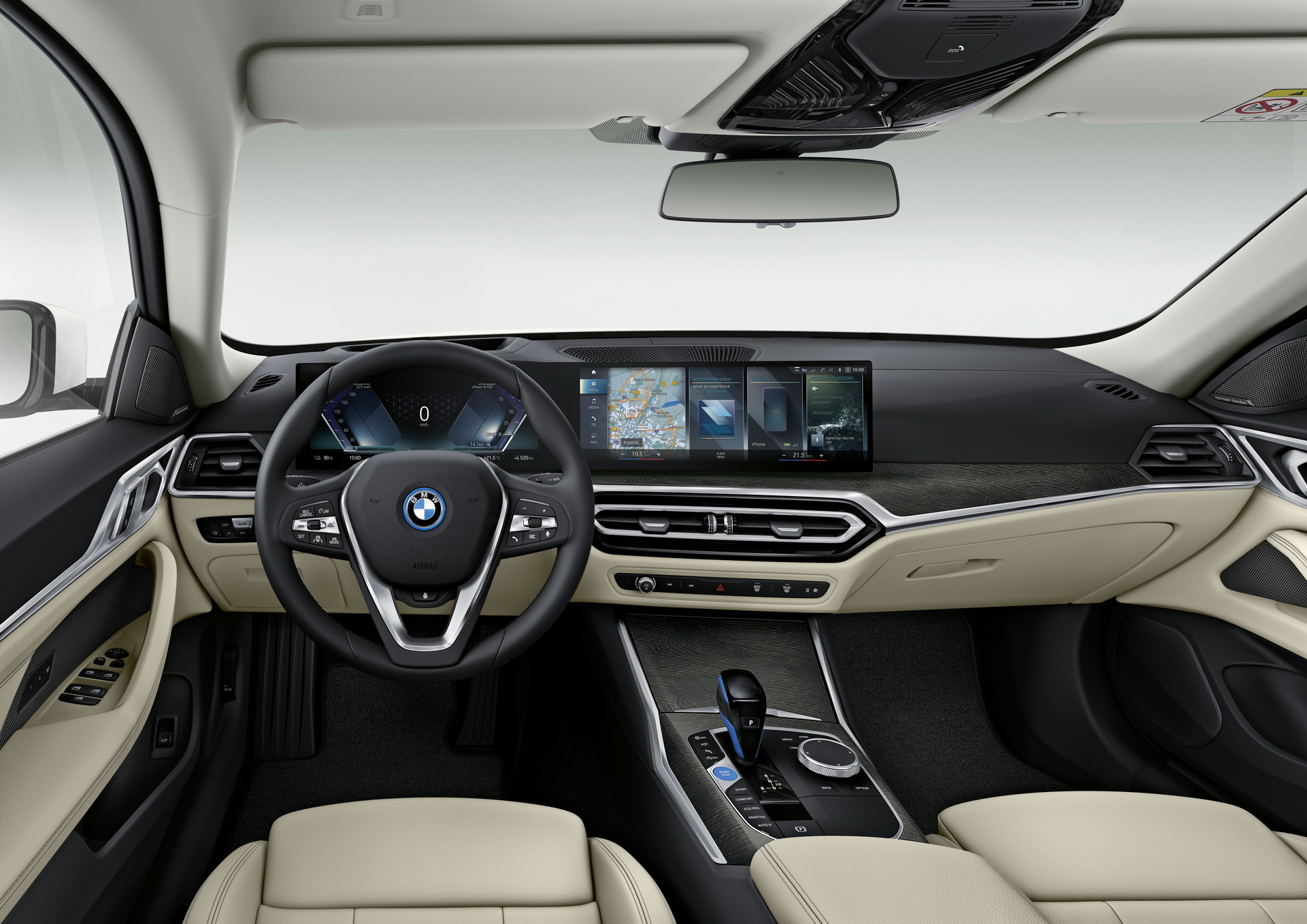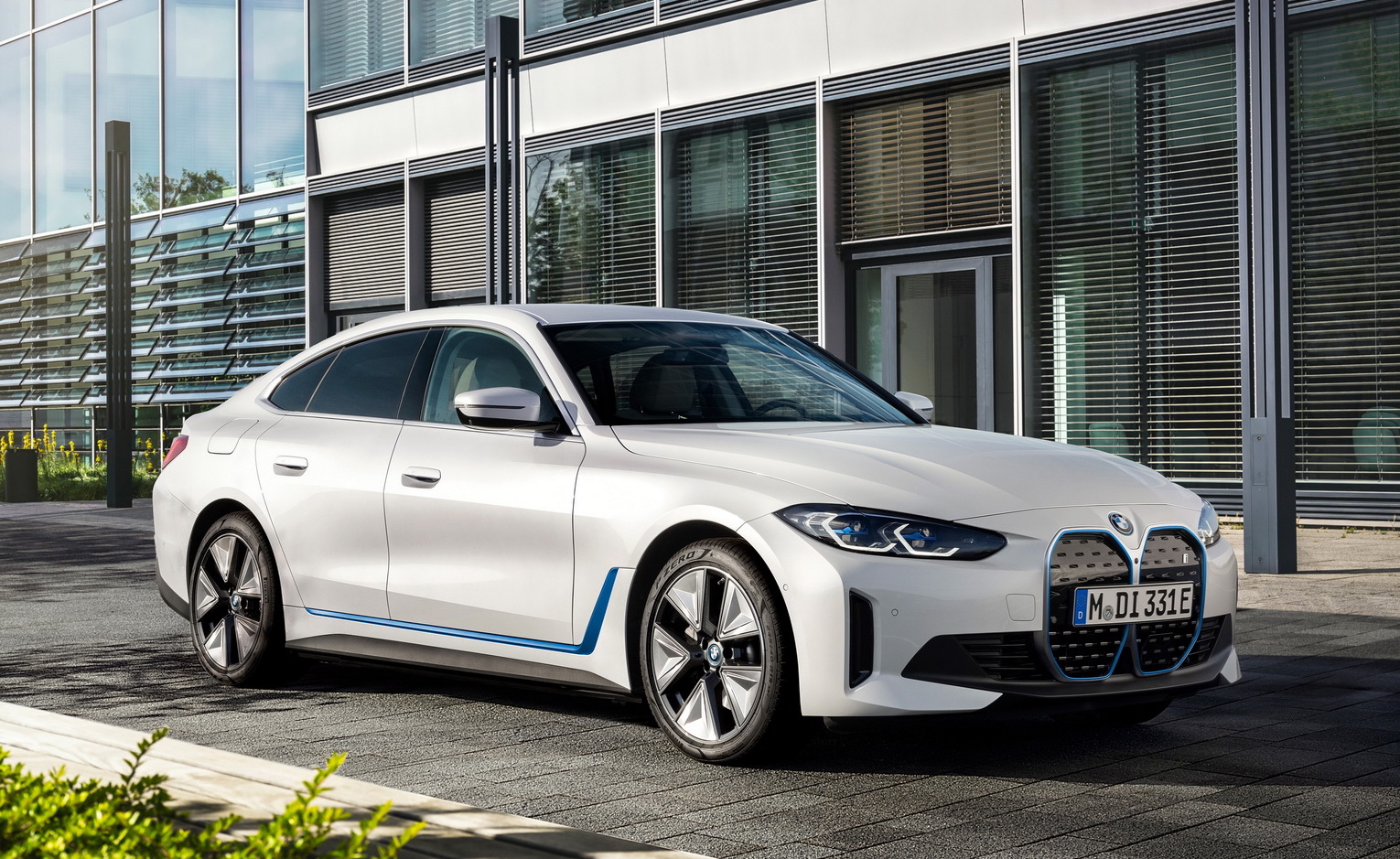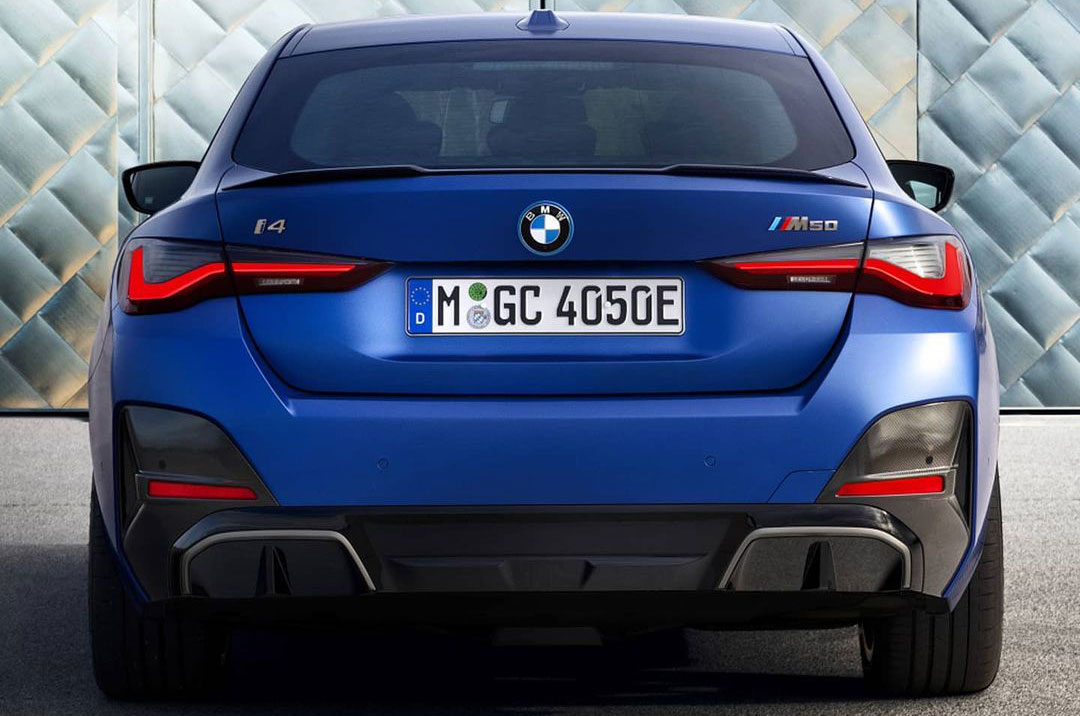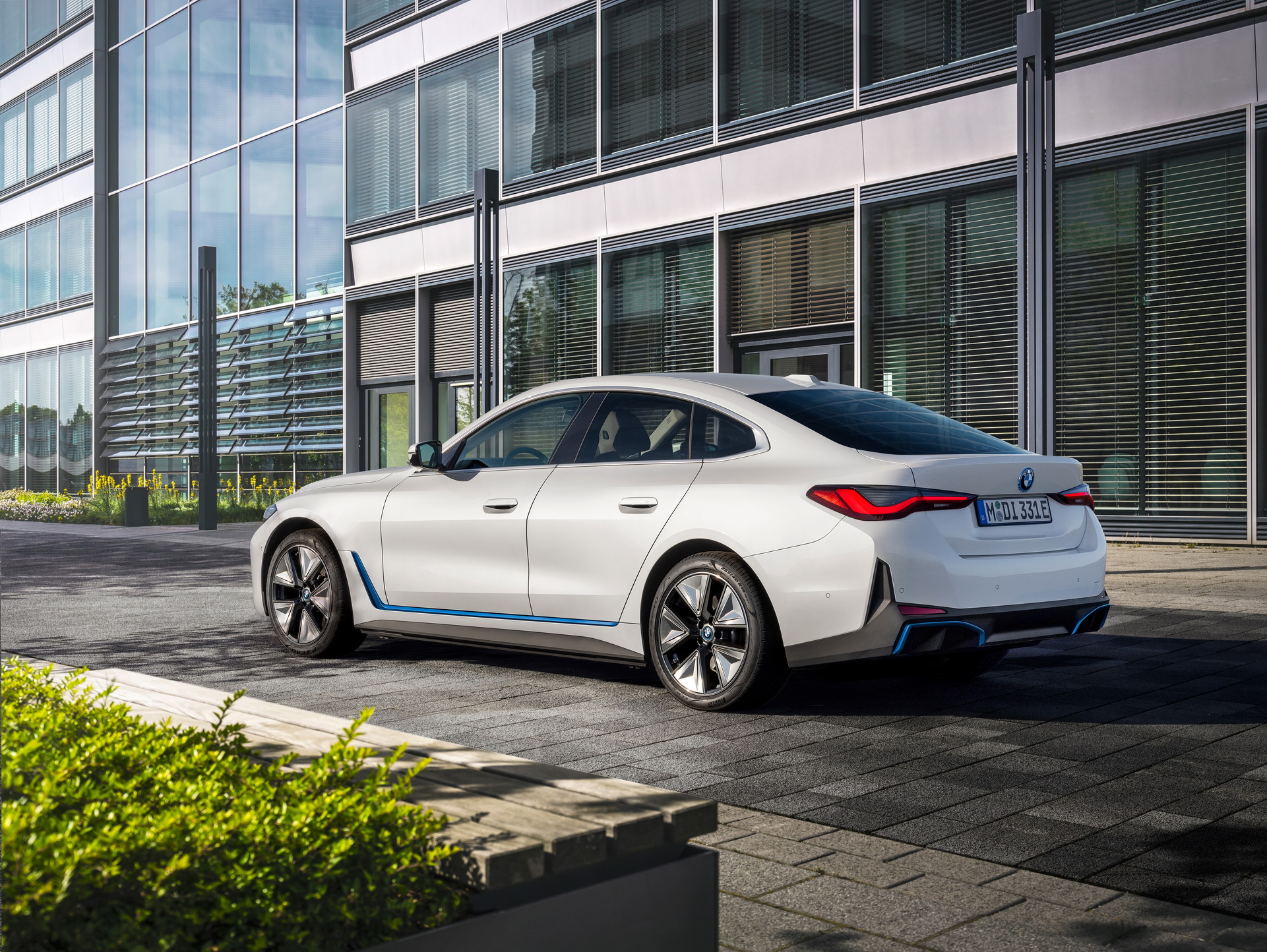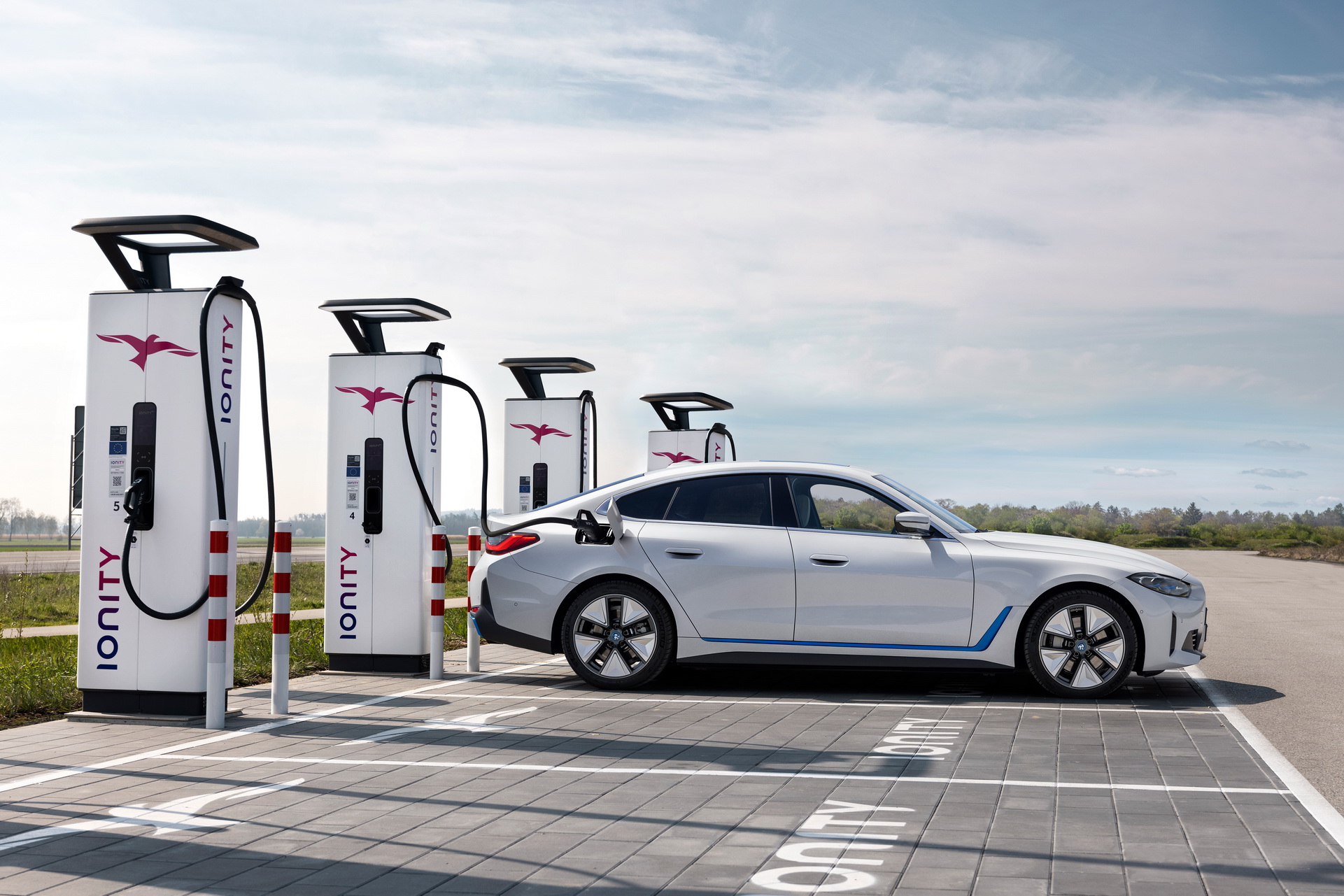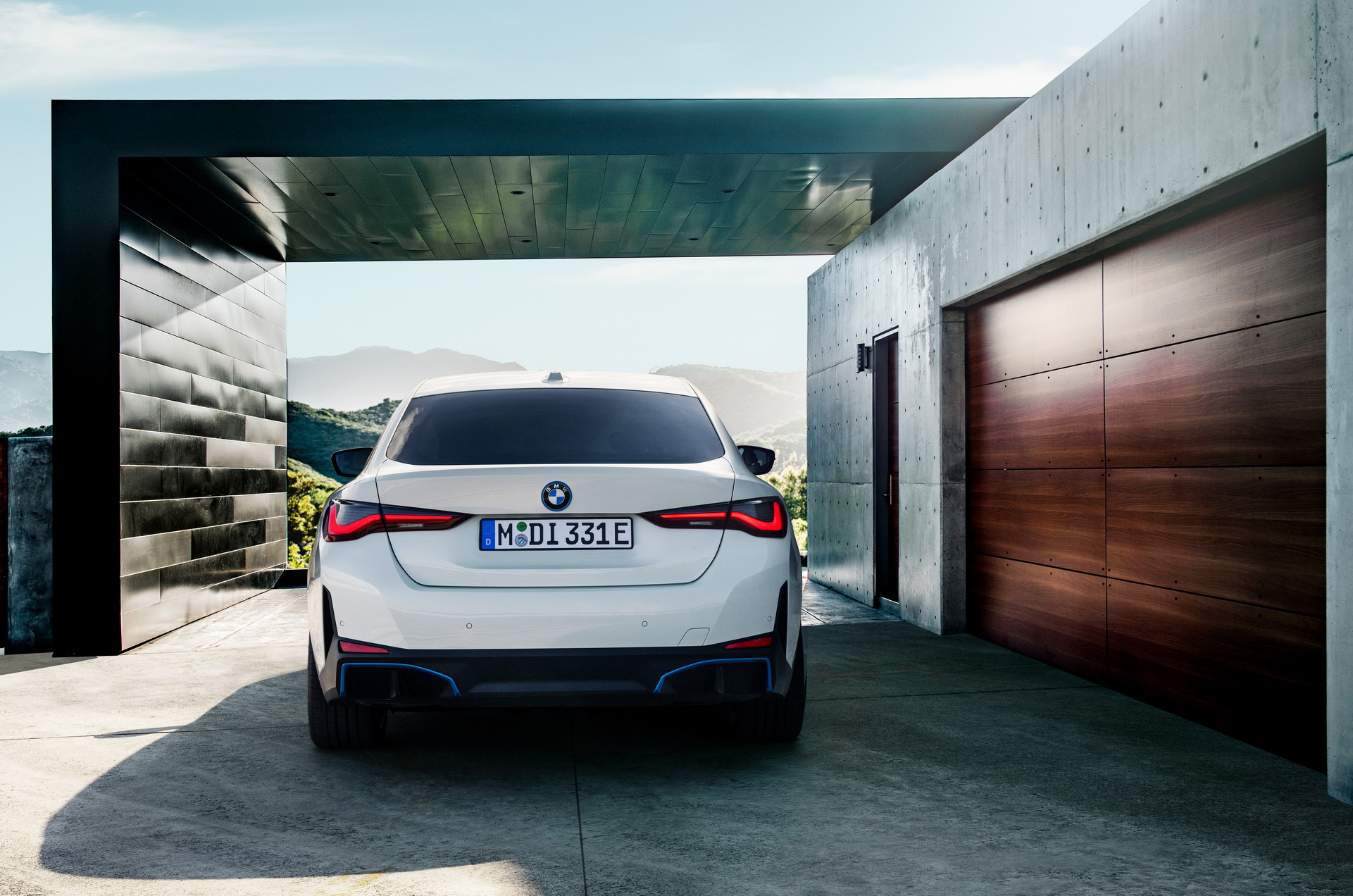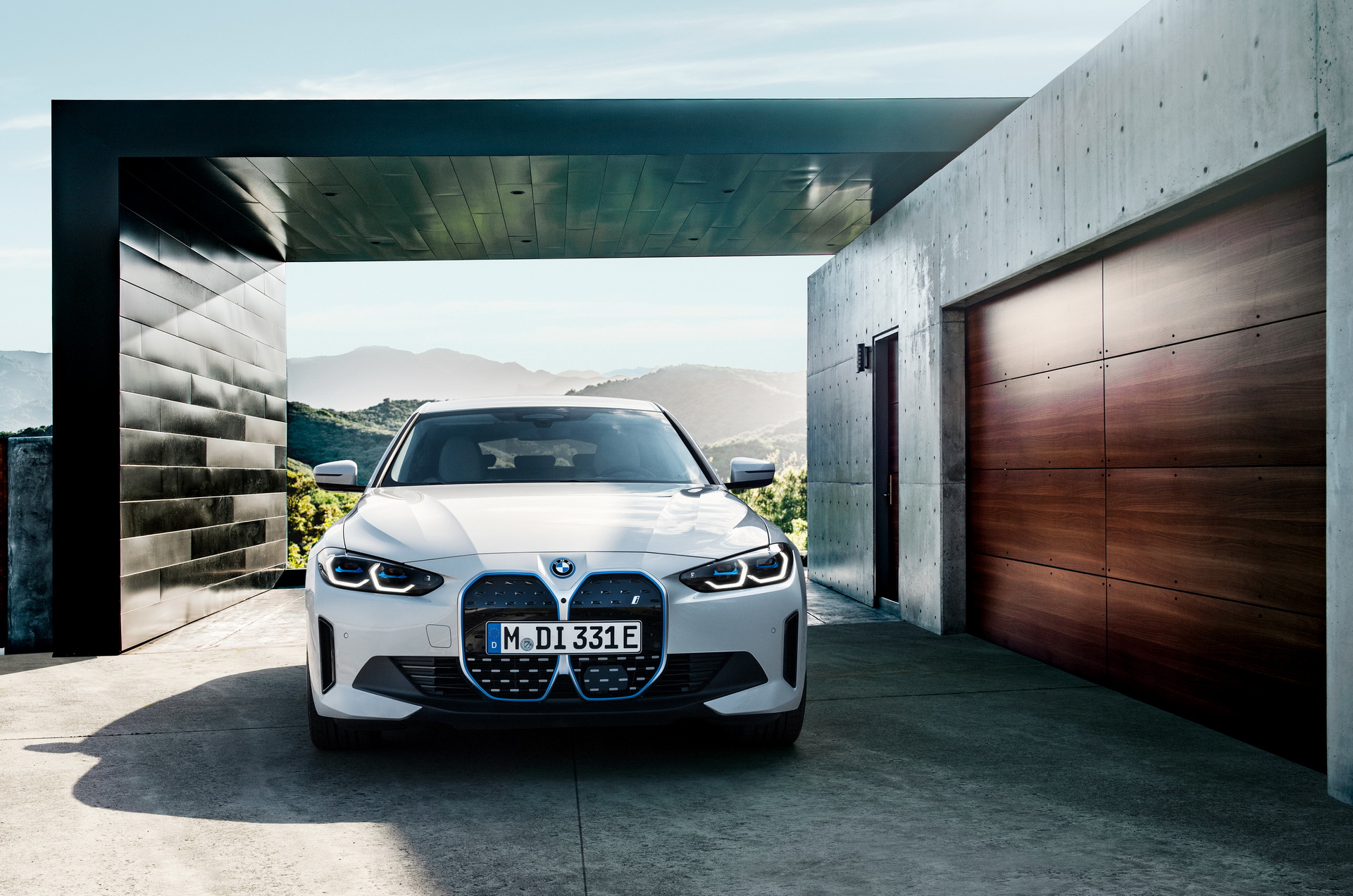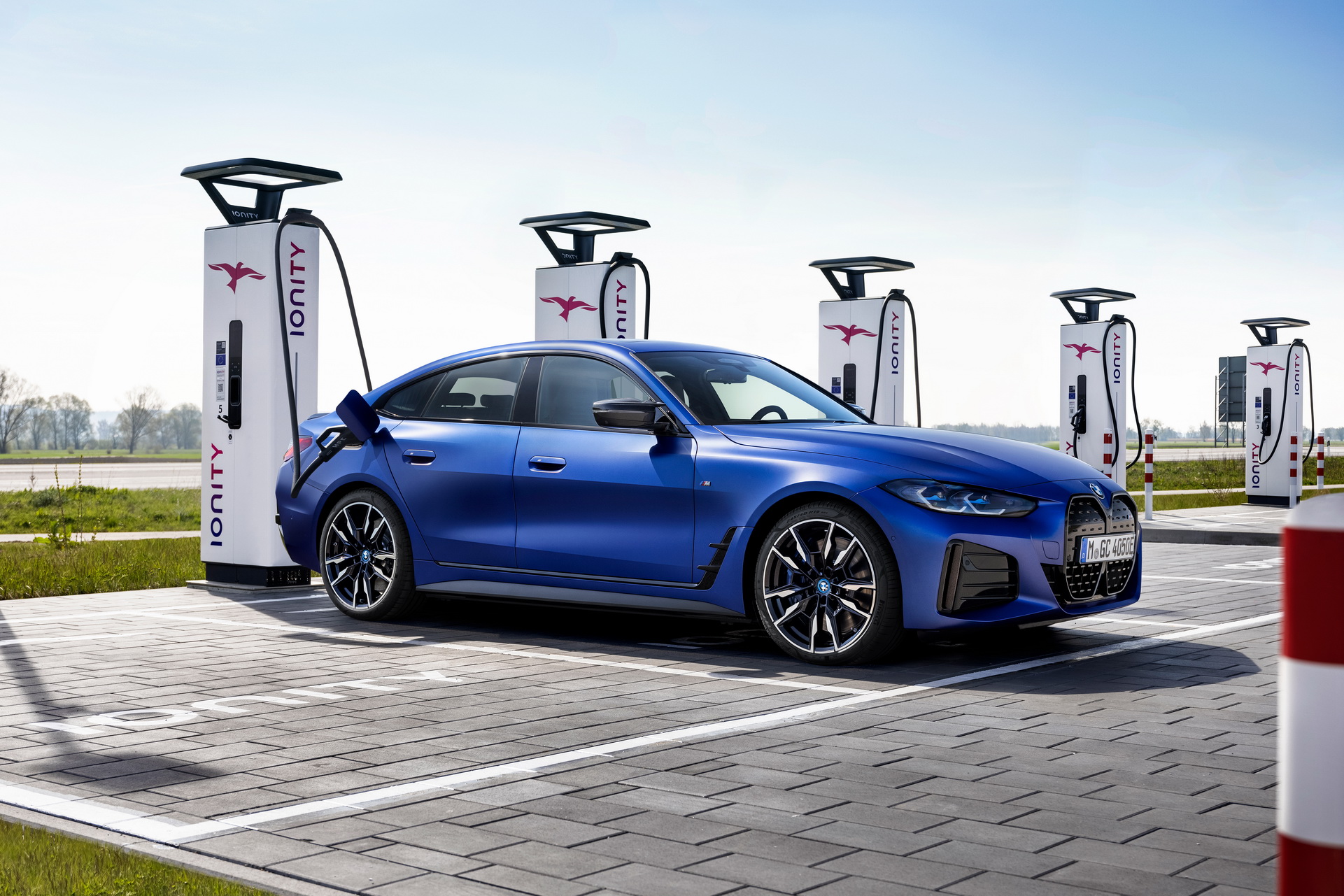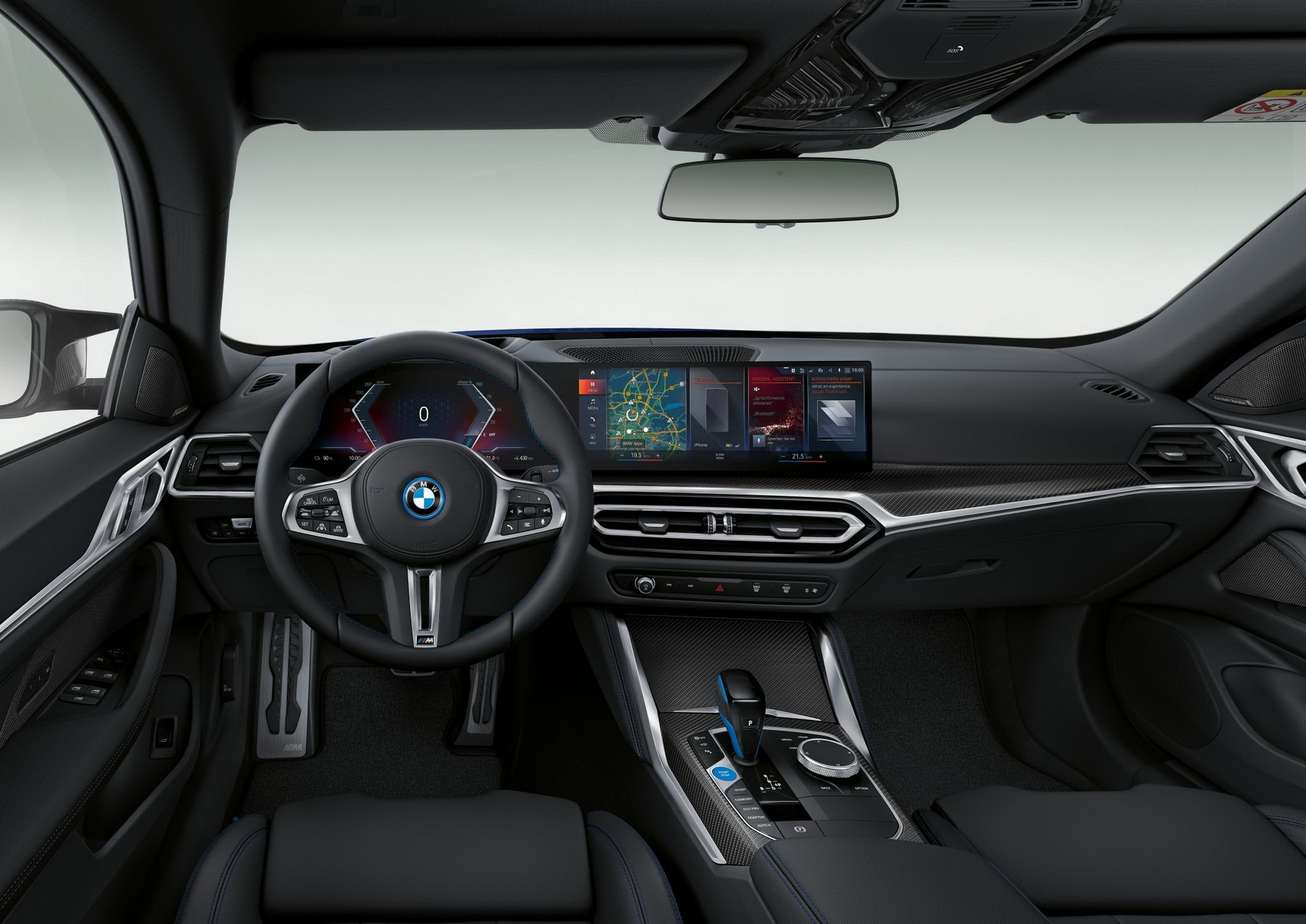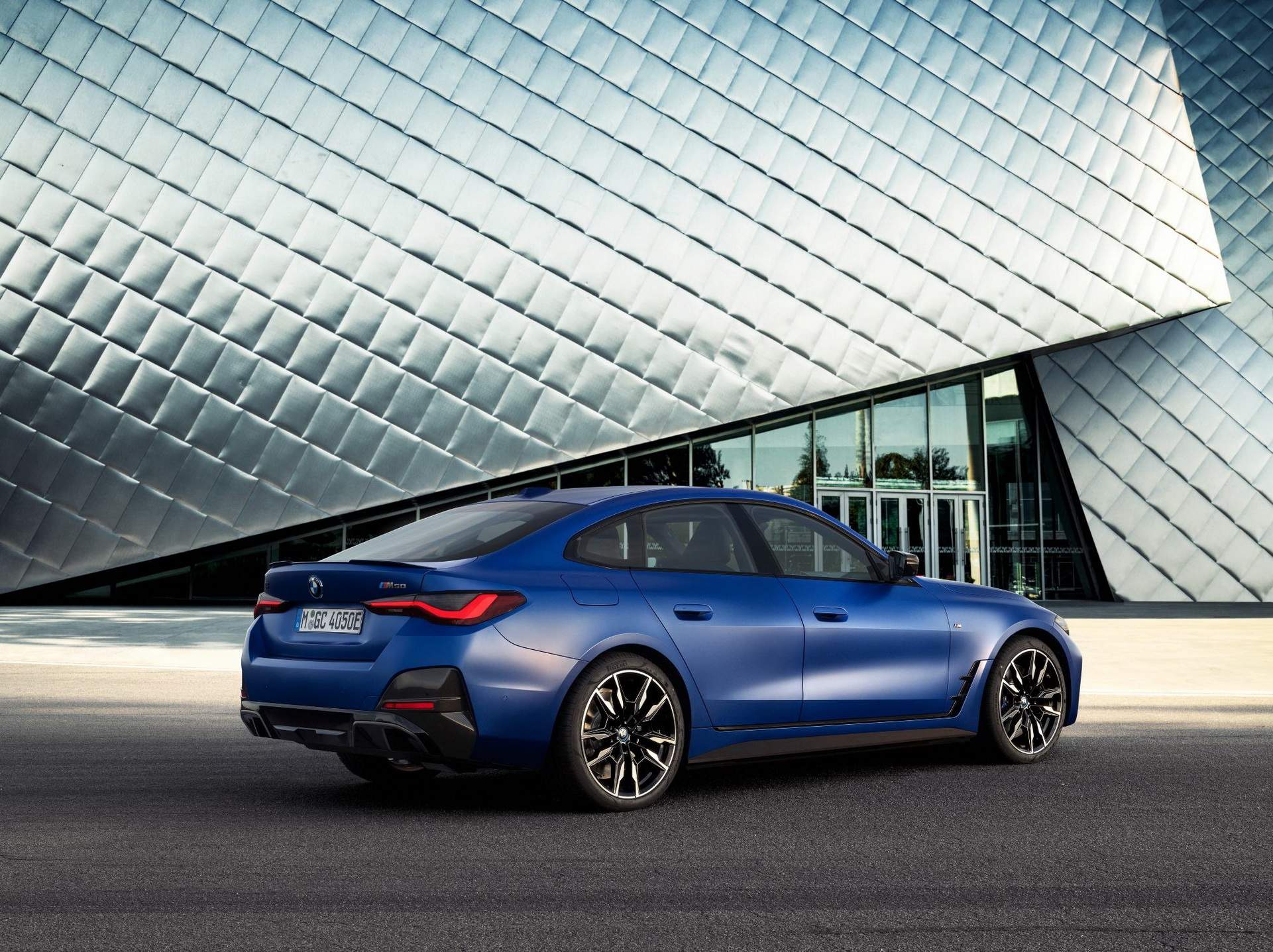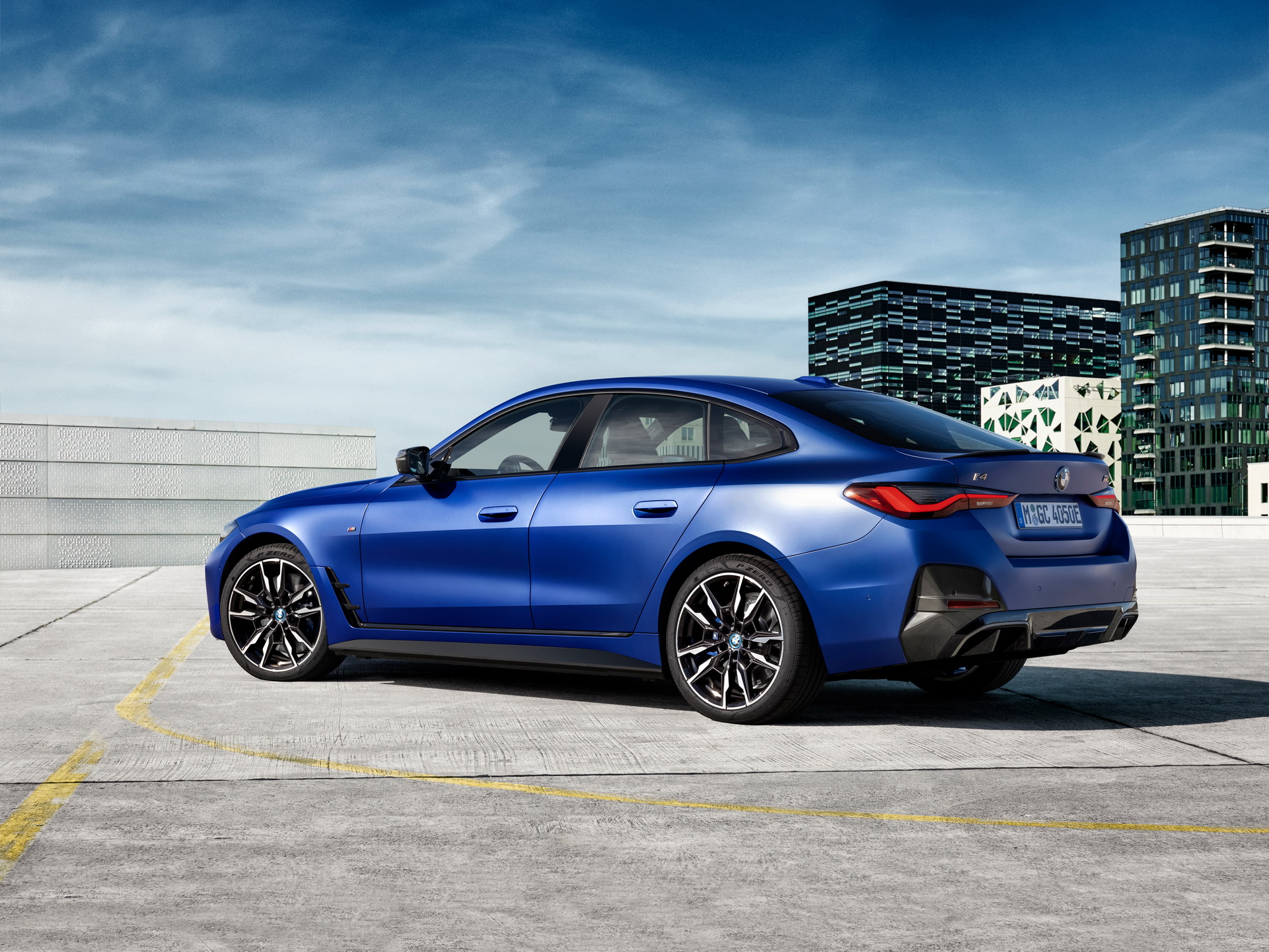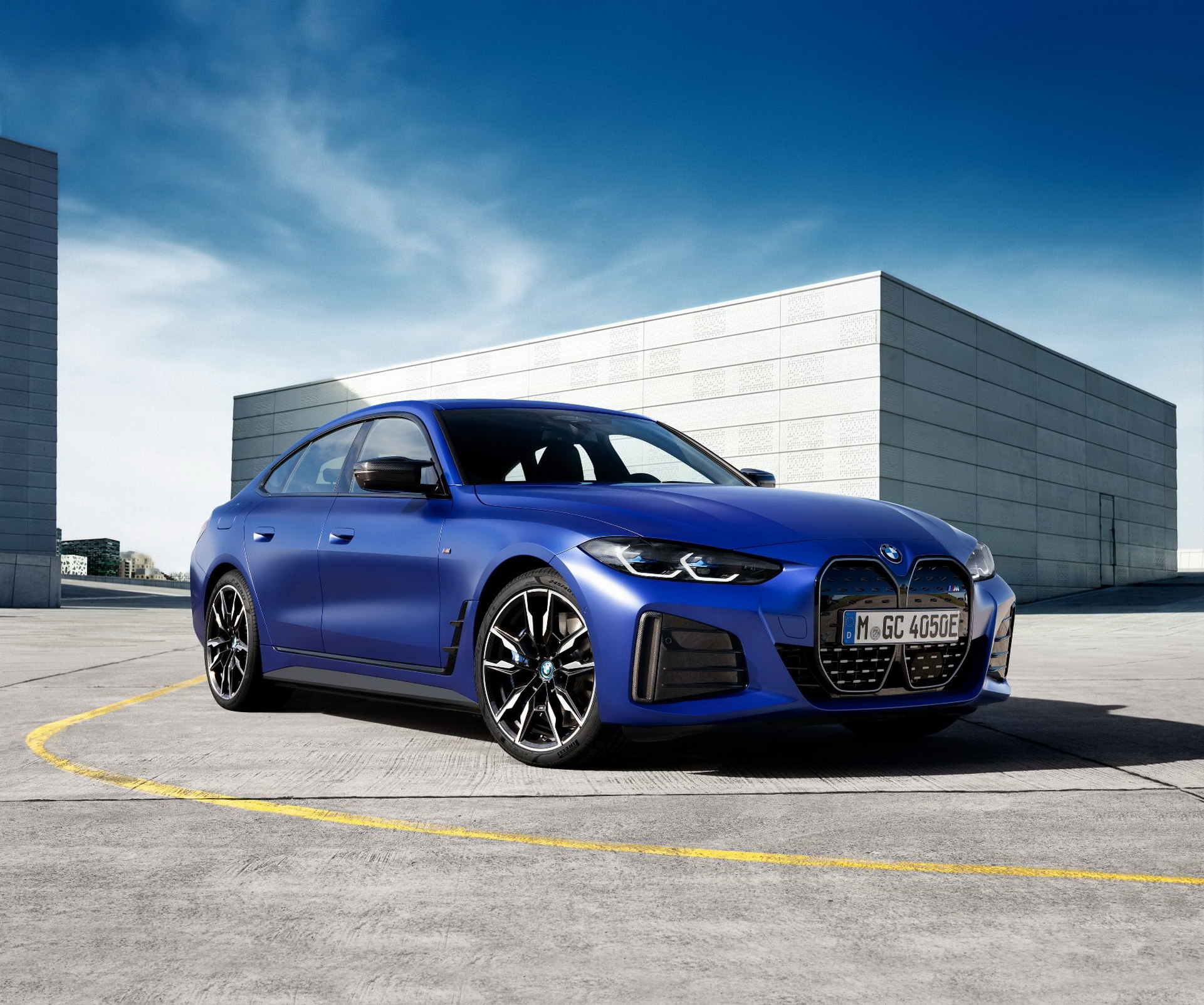BMW’s big news for 2021 is the i4 electric car and its high-riding iX brother. And the even bigger news as far as car enthusiasts are concerned is the i4 M50, BMW’s first M-badged EV.
For $55,400 plus the dreaded destination (but before tax credits), the i4 eDrive40 serves up 335 hp to the rear wheels via a single motor and gets to 62mph in 5.7 seconds. Step up to the $65,900 i4 M50 and you get a combined 536 hp, two motors, all-wheel drive, and the ability to split to 62 in 3.9 seconds.
Read: BMW Reveals New i4 Electric Sedan’s Interior, Specs And U.S Pricing
But are those performance figures really good enough in the age of super-quick EVs? The numbers look respectable by gas-engine standards, and either is going to give you enough of a kick in the back to get you safely past a semi on a long uphill climb.
The eDrive40’s on-paper performance closely matches the 5.6-second zero to 62mph time of the (much less expensive) BMW 330i, and the M50 runs neck and neck with the rear-wheel drive M3 Competition, while costing less than the non-Comp version. Ands yes, the M50 only makes its peak power for 10 seconds before output drops to 469 hp, but that’s never going to present an issue anywhere but the hauling out pot the last curve at the Nürburgring Nordschleife.
But the i4 isn’t a gas-powered car, it’s an EV. And cars like the Tesla Model 3 have created an expectation of performance that the i4 can’t live up to.
Related: Can The All-Electric Audi RS e-tron GT Worry The BMW M5 CS?
Okay, so the eDrive40’s 5.7 second 62mph time is only a tenth adrift of the 5.6 Tesla quotes for the Model 3 Standard Range Plus, and the BMW’s driving range is far better. But it costs $15k more, and even if you factor in the $7500 credit currently applicable to the BMW, but no longer available on the Tesla, the German car is still significantly more expensive.
You could upgrade to the Model 3 Long Range, gaining another motor and all-wheel drive, drop the 62mph time to 4.4 seconds and beat the i4’s 300-mile range by 53 miles, and be out of pocket by only a few dollars even after the tax credit is applied to the BMW.
See Also: The $65,900 BMW i4 M50 Is The First Electric M Car
Or you could go all-in, and take the full-works Model 3 Performance. The Performance doesn’t only lay waste to the eDrive40 – it also leaves the i4 M50 for dead, reaching 62mph in 3.3 seconds (0.6 seconds quicker), while still undercutting it on price. And if President Biden’s plan to remove the 200,000-unit cap on cars eligible for tax credits comes good, the Tesla is going to get even more affordable.
And it’s not just Tesla that BMW has to worry about. How’s an M50 driver going to feel when he gets dropped by Kia’s EV6 GT on its way to 62mph in 3.5 seconds?
M-ore To Come
Realistically, there’s almost certainly more to come from the i4. BMW is touting the M50 as its first electric M model, but the presence of the ‘50’ in that badge tells us it’s an M Performance model, rather than a full M car. So if the guys from Garching later reveal a full-blown i4 M, we could see some real sparks fly.
But maybe they don’t have to. BMW might be preserving the reputation of its gas cars, including the mighty M3, by artificially holding back on the i4’s potential performance. Or it might just be asking us to consider the whole package, and accept that there’s more to a great EV than blistering acceleration. Ferrari, Lamborghini and other supercar makers did something similar years ago when they pulled out of the top speed war, and it in no way diminished their standing.
We could understand that thinking. The BMW will almost certainly feel better screwed together than a Tesla Model 3, and based on experience of other recent BMWs, we don’t doubt it will be plenty of fun to drive. But acceleration numbers help sell premium cars – for some buyers they’re a big deal; sometimes the biggest deal – and the i4’s are nothing special.
Do you think BMW’s i4 is too slow, or would you be fine with having your ass handed to you buy a Kia? Let us know in the comments!



